Sri Lanka: An arrogant fourth estate and a populace indoctrinated by myth
“They will capture me,
They will put me In jail;
They may torture me and they may even kill me.
Then they will have my dead body, not my obedience”
(Mohandas Karamchand Gandhi in South Africa in early 1900s)
Ever since the beginnings of chronicling our history, while it’s the survivor who always pens it, the written tale of our national saga has been dominated by the ruler’s will and beliefs. If the ruler decreed that a particular religion has to take
precedence over another in a multi-religious society, the ruler’s religion takes pride of place. It has happened in Sri Lanka from the time of our ancient kings. Deepawansa, Mahawansa and Chulawansa bear ample testaments to this process. Sinhala domination over the entire land occupied a special mention and how such domination came about is most colorfully described in our history books, especially the ones we read at the elementary and secondary levels.
Biased history and accepted norm
Nevertheless, history books of all nationalities cannot escape from this singularity. It is quite reasonable to expect such partial interpretations of events, for total absence of such partiality would eventually belittle the greatness, so claimed, of the nation in question. So it is natural to claim greatness and righteousness of one’s posture on one’s nationality and one cannot find any serious argument against such biased pronouncements and assertions. It is an accepted norm. Yet, when major political decisions taken by rulers are based on such exaggerated historical facts, the process that follows gets utterly confusing and misleading, leading to historic blunders that only historians would be able decipher after a long lapse of time and space. The ensuing disasters may have commenced their unrelenting journey toward an inevitable end before the contemporary world realizes it.
US Constitution has stood the test of time
Nevertheless, the evolution of mass communication, its applicability to everyday lives of a collective mindset, its swift spread among the western democracies with the gradual decline of feudalism aided by modernization of the print medium coupled with the people’s unquenched thirst for news and opinions has increased the collective social consciousness of the masses. In this context one document has stood the test of time: the United States Constitution and its first ten amendments commonly known as the Bill of rights.
America still leads
Battered as a “capitalist, neo-colonial power” by the so-called non-aligned countries who were consistently prompted by the then Soviet Union during the greater part of the twentieth century, especially during the height of the cold war, the United States of America has managed to remain a super power not only in the military sphere but in the realm of global financial markets, despite the ill-fated policies of George Bush that resulted in the 2008 financial meltdown. One would have thought that the saying “when America catches a cold, the third world contracts pneumonia” applied only during the second half of the twentieth century. Yet it is applicable today too, in spite of the very damaging demeanor presented by the Banking and Investment giants whose present predicaments were greatly influenced by the wrong monetary policies followed by an administration that was somewhat divorced from the existing American reality.
One of the finest documents ever written
However, the American Bill of Rights which includes, among others, freedoms of religion, speech, a free press, free assembly, and free association, as well as even the right to keep and bear arms, stands today as the one of the finest
documents that has been written into constitutional law of any country. What is at the core of the Bill of Rights is the individual. This writer is neither an attorney nor a constitutional expert and the sentiments expressed here should be looked in that light, but as a keen student of politics and history, the writer feels that he has every right and obligation to present things as he sees them, especially in the context of contemporary socio-economic-political affairs. One major distinction between the Western Democracies and the Eastern world is the base on which matters of law and the cultural progression that flows from adhering to the law; are founded. The East is preoccupied with “greater good for greater numbers”; a cultural and religious norm practiced or purported to be practiced, by the people. With a profound commitment to religions of Eastern thought, they seem to be content to sacrifice the individual pleasures and attainments for the greater good of the community that they live in.
The right to pursue individual happiness
The evolution of the Western democracies, especially America, on the other hand, is primarily founded on individual freedom, individual rights and assertions, individual likes and dislikes and individual liberties and expression. The religious foundations of thought are based on individual salvation, the various embellishments that evolved from the surrounding atmosphere and were added later into the teachings, preached of a salvation of entire mankind.(Buddhist aims channeled towards “sakala sathwayáge mόkshya udesa”, the English translation being “for the liberation of mankind”). This is emphasized in Hinduism too; leading religious scholars of the West to brand Eastern bend of religious thought, especially Buddhism, as pessimistic and other-worldly.
Individualism redefined as purely selfish
The shift from the individual to the community or society paved the way to belittle the significance of immortal value of concepts like freedom, right, privilege and duty. This shift further buttressed the Eastern school of thought to relegate the individual from a supreme status to a secondary one as individualism was redefined as purely selfish. And with the advent of Communism and Socialism as society-moving forces, this shift enhanced the dynamic of “greater good for greater numbers”. The result was the subjugating of individual freedom for society’s good or security. That is why in countries such as Sri Lanka, Bangladesh and India, the concept of marriage is occupying a unique position in that when one gets married to another, it is not only a union of two individuals, but of two families, sometimes extending that union to an even larger community to include their kith and kin of previous generations.
A messy potpourri of relationships
True, it has its own inherent advantages; for instance, the enlarged family connections might contribute to greater mutual material benefits, the sense of security that it generates should ideally work towards cementing the matrimonial bonds between the partners etc. Yet the disadvantages of this relegation will undoubtedly add to the dulling of freedom of intellectual curiosity, deadening of individual inspirations and most of all, withering of self-respect. In such a messy potpourri of relationships what suffers most is that creative genius that has driven man from the cave to the modern world. This is where the so-called third world resides, for its occupants, the freedom of speech, freedom of expression, freedom of movements & association may sound like abstract phenomena propounded by the elites of their respective societies.
Education the common denominator
Nevertheless, these societies, though primarily of the “third world kind”, have thrown up great liberals such as Gandhi, Nehru, Ali Bhutto, Lee Kuan Yew, S W R D Bandaranaike and Dudley Senanayake. The common denominator among all
these greats is their education, which was obtained from the West. Of all these giants, except perhaps Gandhi and Lee Kuan Yew, all the others got somewhat carried away by the local political flow of their countries. However, “Indian exceptionalism”, especially in the sphere of media freedom and individual assertiveness, stands out as a beacon to the rest of this group of countries, mainly due to the fact that the Indian masses were engaged as one single cohesive group in their freedom struggle in the early part the twentieth century and the very progressive liberal approach that she adopted in solving her national problems, extraordinarily led by such giants like Nehru and Shastri immediately after winning independence from the British Raj, helped .
Indoctrinated by the legends of the Mahawansa and an arrogant media
Unfortunately that has not been so in Sri Lanka. The politics of the cavalier aided and abetted by an uneducated mass of people, a great majority of whom had been indoctrinated by the glories of the Mahawansa legends have combined to treat
the rights issue as an elitist privilege. Moreover, the very pundits who profess about these rights – the media – have been treating this subject as their sole property, without relating the pros and cons of these rights to everyday life of the common man. The ultimate result is an apathetic populace and an arrogant fourth estate. The real freedoms have become the inevitable victims of this duel dynamic.
Saviours of a capitalist media
In Sri Lanka the first danger to free media manifested itself in the late nineteen sixties with the threat of the Lake House takeover. The then Leader of the Opposition, Dudley Senanayake assisted by his deputy, J R Jayewardene and the United National Party took the protest to the streets with their faces covered with black cloths to demonstrate their opposition to the proposed bill that had been tabled in Parliament. They were portrayed as the saviors of the capitalist-class media moguls. The repercussions that would usually accrue to the passage of such a bill never related to the ordinary man.
Street protests a maligned topic at cocktail parties
The right to Information was not even in the political conversation at the time. Street protests became a much maligned topic of discussion at evening cocktail parties whilst ordinary folks who responded to the call by the leaders did not understand the real meaning of a gagged press. State maneuvering of the Press that began thus in the nineteen sixties has expanded in scope and has been continuing until today under whichever Party that was in power. Once again the victim was Freedom of the Press. Neither the political leaders, nor those who represented the so-called “free media” were able to engage the common man in the fight, for the common man did not comprehend the objectives, role or raison d’être of the free media.
Some Founders of the Free Media Movement now mere government lackeys
When one takes a leap from the nineteen sixties to the present day, the tragedy has multiplied manifold. What was once a takeover of a private business (The Lake House) has graduated to disappearances to torture to ultimate murder of media personnel. Some founders of the Free Media Movement in Sri Lanka have become paid workers of the governing party alleged to have committed these very crimes. Transparency and accountability, two sides of the same coin that is the hallmark of a just and free society are conspicuously absent from the state lingo.
Karu and the Right ot Information Act
The attempt made by Karu Jayasuriya, UNP MP for Gampaha district to table an Act for the Right to Information was not
even allowed to be tabled in Parliament a couple of months ago. What is necessary is an educating process of the masses. So long as the masses remain divorced from the movement, so long as they remain apathetic towards what is perceived as the “privileges of an elite”, the country will stagger along the same old lines, insensitive to the needs of media personnel and the general public. All those who have disappeared and been subjected to torture and even murder are a husband, father, mother, sister or a brother of another living person. They too are flesh and blood of our family that is called Sri Lanka.
Stand and be recognised
The disappearances and killings will continue, as long as our leaders and their followers engage in abstract speechifying. If one person or one organization wants to articulate the pros and cons of this process and implement a practical program of action that can galvanize the ordinary masses, that person or organization must stand out now and be recognized. The rest will follow.
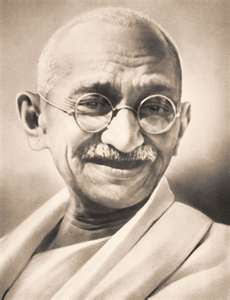
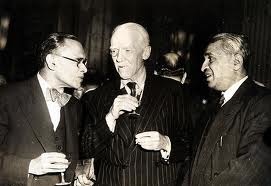
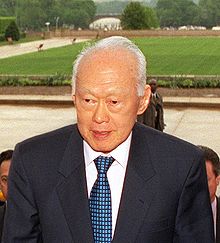
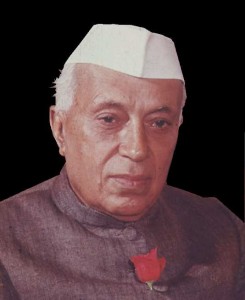
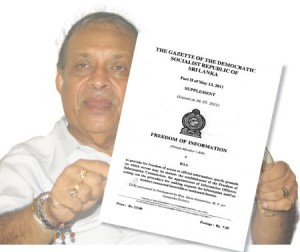

December 5, 2011 at 3:23 am
An interesting and well written essay as usual, (if a trifle too conservative-liberal and ‘Orientalist’) which however, seems to avoid the Archimedean point of leverage.
The NORAD report names the Sri Lankan political situation as one of uni-polarity. This provides a welcome opportunity from moving away from the usual categories and bringing to bear a systemic analysis on the Lankan condition. Such an analysis means understanding the whole, as a system, in which the parts behave according to the logic driving the system. Thus a certain political personality would behave differently if the system was differently configured, while a different political personality would behave similarly if the systemic configuration remained unchanged. The key determinant is the uni-polar character of the system, which as the Norwegian study shows, was not always the case. It is a result, a product of the ‘lack of a credible alternative’, deriving from the ‘leadership crisis’ of the UNP, which itself has two sources, the ‘legitimacy crisis of the UNP leadership ‘because of its pro-western orientation and its neo-liberal economic policy and ‘the refusal of Wickremesinghe to step down despite successive defeats’. The uni-polarity is consequence of this causation and its by product is the possibility of electoral victory purely by appeal to Sinhala voters and further resultant is the marginalisation and lack of leverage of democratic minority stakeholders.
Thus, any continuing preference and support for Wickremesinghe ( and here I do not refer to Vishnugupta whose critique is on the record) undergirds the uni-polar character of the ‘game’ and inter alia, undermines the goal of ethnic reconciliation through reform.